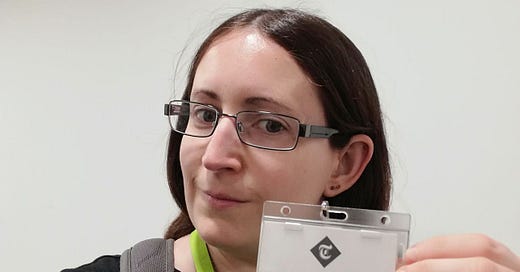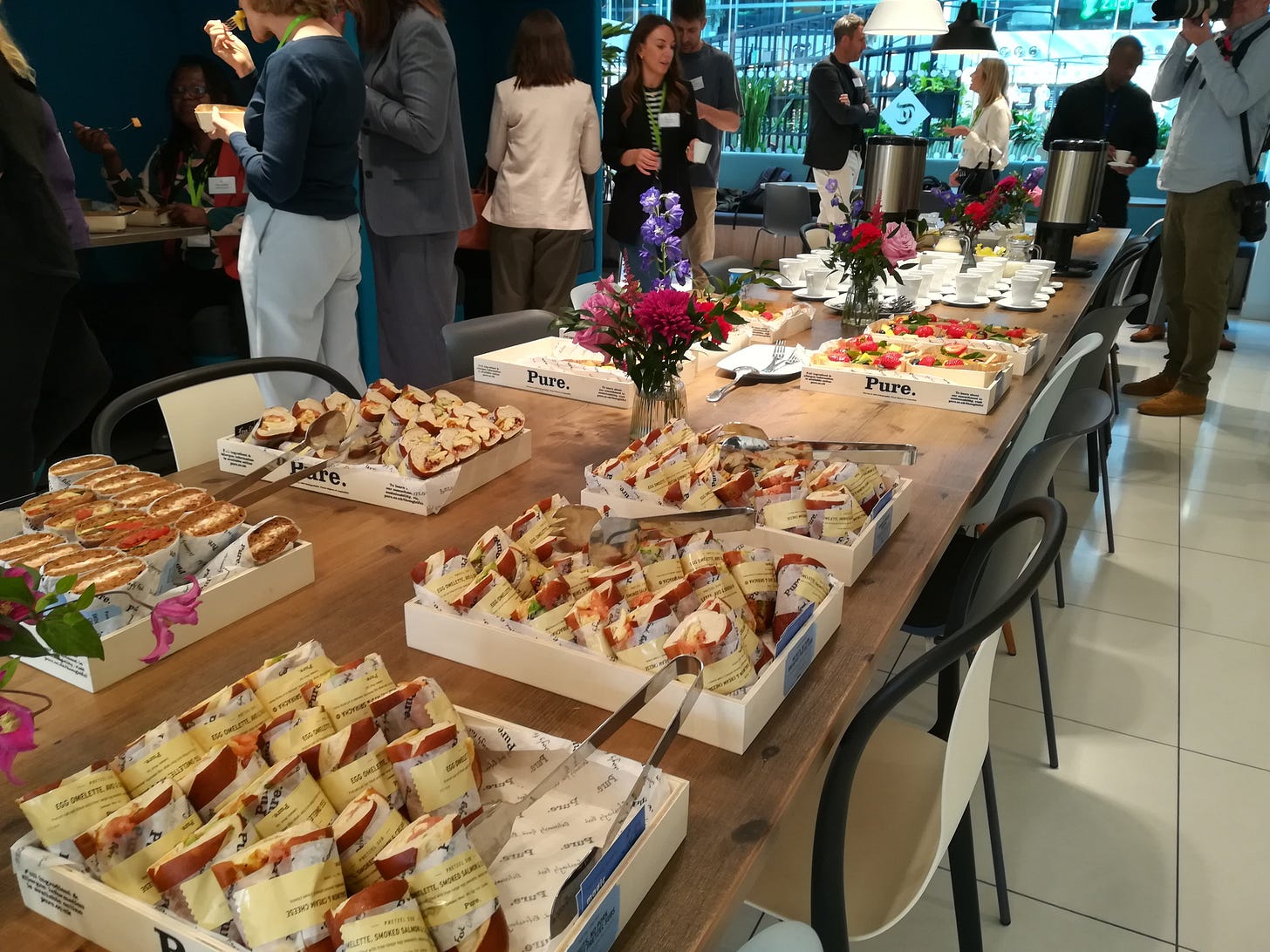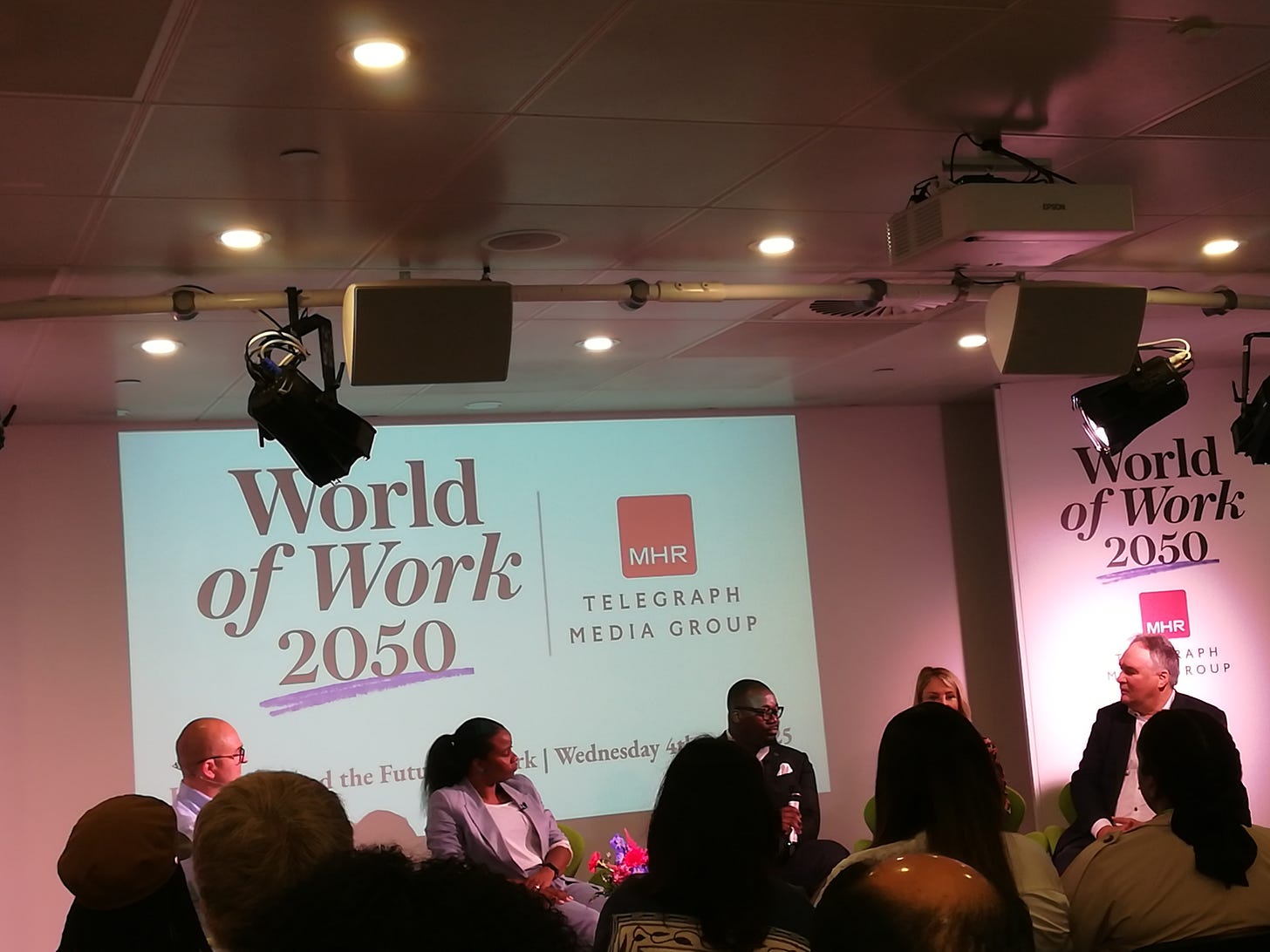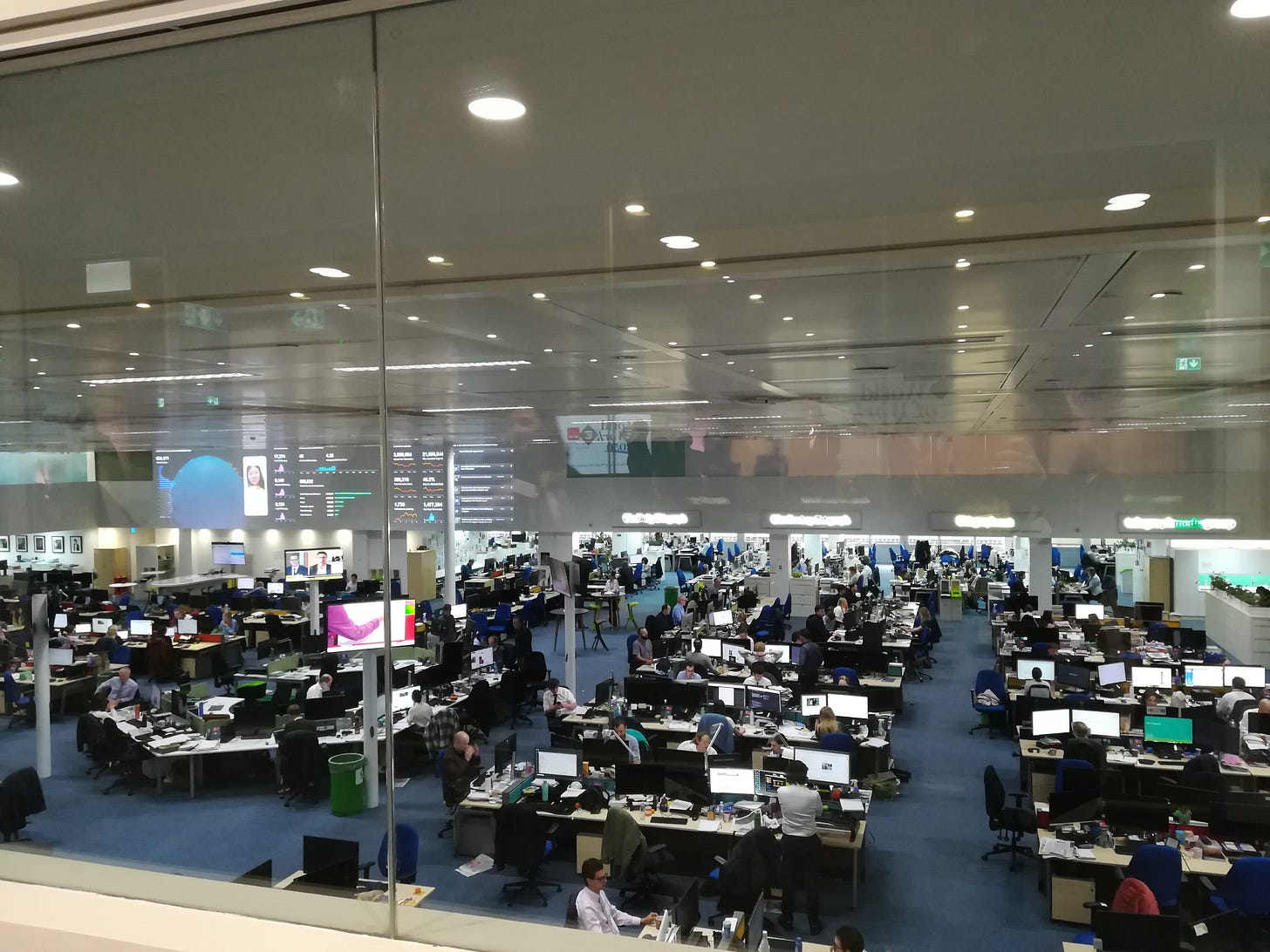I went to a business networking breakfast
Business networking and learning about the future of business with The Telegraph and MHR
Sometimes to improve your digital marketing, you have to work in the real world. And when The Telegraph, one of the world’s biggest newspapers, advertised a business networking breakfast that they were hosting at their offices with HR company MHR, I just had to sign up. Day to day I do Internal Communications in a changing world, keeping very diverse groups of colleagues connected, so I felt it was important to attend a business networking event to help me to understand how things were likely to change, and how I could stay ahead of the game.
Even though I’m not a fan of early mornings, I was pretty buzzed to see the huge 111s pressed against the grey façade of the Telegraph’s office. I was sent to the dining room by some stern faced yet very friendly chaperones who looked like something out of Men In Black. There was a spread of tasty sandwiches, punnets of fruit that definitely provided two of my five a day, and some yoghurt compotes which I missed because I got into the flow of networking and conversation, adding a coffee to my plate. I rarely drink coffee, but I figured I had to check if the Telegraph had good coffee – someone might ask later. And yes, they did provide good coffee.
We were escorted into a chunky lift that was a squeeze with so many delagtes inside it, despite the size and into a small roof set up with linear chairs, a free cotton shopping bag on every seat, containing a newspaper of course. I rested my teacup on the floor (you didn’t think I only had a coffee, did you?) under the seat in front of me and the talk began.
Different perspectives, different lived experiences
The panel (Tom Cheesewright, Dara Douglas, Duro Oye and Sophie Howe, André de Waal) took us back through time to the early days of work, when status and money was the most important thing to the workforce. This has changed. The younger workforce, Gen Z, have a very different outlook on life.
The older workforce had free or much cheaper education and they reached major milestones like being able to afford to buy a house and settle down at least a decade earlier than their younger counterparts. Much of the younger workforce are still renting, experiencing financial insecurity and can’t yet see a point in time when their circumstances will change. Gen Z’s priorities and perspectives are different. Being forced to return to the office 2, 3, 4 or any number of days a week is abnormal to them, as many began their working life remotely – and it worked. They value a work/life balance highly and place a higher importance on wellbeing, equality and the climate crisis as the default. The climate anxiety that many of the younger members of our working population are feeling is something that isn’t shared by their older colleagues, and they probably don’t understand it either.
Often people love their job but hate their work
If employees feel that their job isn’t working for them, they often take the easy option and leave rather than speak up to let you know that something is wrong. Leaving for new opportunities is also the easiest way to progress and secure good pay rises. Bad management and stagnant company cultures are two very strong reasons for high turnovers, and what’s the point of speaking up if you don’t think that anything will change?
For the younger workforce, it’s very important to feel heard and that the work you are doing is contributing to the company’s success. One solution that the panel championed was Reverse Mentoring. Mentoring traditionally is when more senior members of staff take junior members of staff under their wing and guide them, which is absolutely valuable. But it’s important to learn from junior members of staff too. Younger employees are largely self-taught and tech-savvy. They also have very different ideas about how the workplace should be. It’s important for senior employees and managers to learn from them and to take their perspectives and ideas seriously, to ensure not only that younger colleagues are happy and retained, but also to help keep businesses modern, future-proof and thriving.
Mentoring has its limits (aka one person can only mentor so many people at a time, usually one), but even if you’re not being mentored by a younger member of staff, it would still do all senior leaders good to engage with junior members of staff regularly in order to learn about their different ideas and perspectives. Healthy businesses are those businesses that can adapt to change.
Gen Z are also a generation who are comfortable trying and failing, and it makes good business sense to provide safe spaces where they can do this. Practicing this fosters collaboration and in the long term can conjure up great ideas, or even safeguard a business from rolling out things that won’t work.
Technology and AI
Technology is evolving at a rapid rate, and AI is here to stay. The panel said that the best way to implement AI is to plan first how your business will use it and then roll it out carefully to facilitate and support specific goals.
The suggestion was to let AI handle the more mundane, day-to-day tasks, freeing up time for colleagues to do the harder, more important work. They predicted that ultimately AI could mean that we work less and in the end have more free time to do the things that society needs us to do, such as caring for others, and allowing us more time to relax and recharge, avoiding burnout. AI is still relatively new, so whether it will benefit us in this way, we’ll have to wait and see. Whether we’ll be sensible enough to use it wisely is another thing.
Thank you to The Telegraph and MHR for having me, I had a great business networking event with you in London. If you enjoyed this little nugget, why not hit the subscribe button below for more gems like this.
All photos in this article copyright Louisa Guise.







